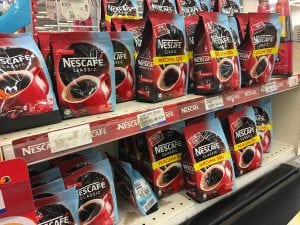 Shareholders are calling on major consumer product companies to reduce their plastic packaging, ensure recyclability, and help fund collection and recycling.
Shareholders are calling on major consumer product companies to reduce their plastic packaging, ensure recyclability, and help fund collection and recycling.

 Associate Editor Jared Paben has worked for Resource Recycling since December 2014. Most of his earlier career was spent as a reporter for the daily newspaper in Bellingham, Wash., but he also has experience working for the Oregon volunteerism commission and for Oregon nonprofits serving low-income populations. He can be contacted at [email protected].
Associate Editor Jared Paben has worked for Resource Recycling since December 2014. Most of his earlier career was spent as a reporter for the daily newspaper in Bellingham, Wash., but he also has experience working for the Oregon volunteerism commission and for Oregon nonprofits serving low-income populations. He can be contacted at [email protected]. Shareholders are calling on major consumer product companies to reduce their plastic packaging, ensure recyclability, and help fund collection and recycling.
Shareholders are calling on major consumer product companies to reduce their plastic packaging, ensure recyclability, and help fund collection and recycling.
 Global health and medical products company Johnson & Johnson says it might fail to achieve its packaging recyclability targets.
Global health and medical products company Johnson & Johnson says it might fail to achieve its packaging recyclability targets.
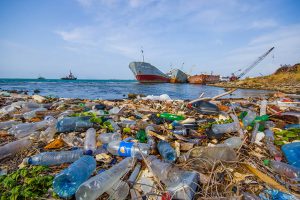 Major brands, nonprofit organizations and industry groups will raise $150 million to boost the collection and recycling of plastics that may otherwise become marine debris.
Major brands, nonprofit organizations and industry groups will raise $150 million to boost the collection and recycling of plastics that may otherwise become marine debris.
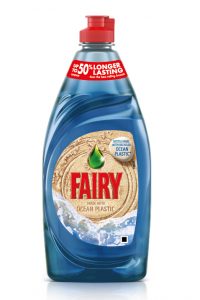 After producing 150,000 shampoo bottles made partially with recovered marine plastics, Procter & Gamble will now do the same thing with 320,000 dish soap containers.
After producing 150,000 shampoo bottles made partially with recovered marine plastics, Procter & Gamble will now do the same thing with 320,000 dish soap containers.
 One of the world’s largest footwear manufacturers sold 1 million pairs of shoes last year made partially with recovered marine plastics, and it expects to sell another 5 million this year.
One of the world’s largest footwear manufacturers sold 1 million pairs of shoes last year made partially with recovered marine plastics, and it expects to sell another 5 million this year.
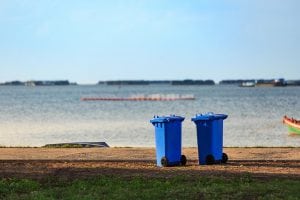 A $1 million grant from the Coca-Cola Foundation will kickstart a program to buy lidded recycling carts for coastal U.S. communities.
A $1 million grant from the Coca-Cola Foundation will kickstart a program to buy lidded recycling carts for coastal U.S. communities.
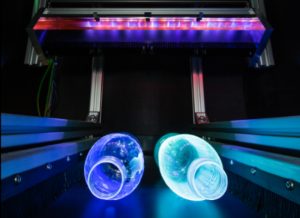 This story has been updated.
This story has been updated.
Inertia continues to build toward the use of tracers and digital watermarks to improve optical sortation of post-consumer packaging. Procter & Gamble is leading an effort to keep everybody on the same page and avoid market fragmentation.
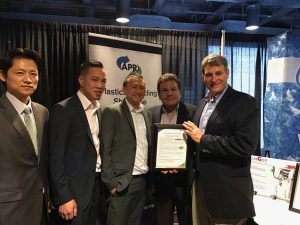
APR’s John Standish (far right) with the team that created the Lush Black Pot cosmetic market product.
Advances in plastics recycling equipment and chemistry – and a couple of recycled content products – took the spotlight at the second-annual Plastics Recycling Showcase.
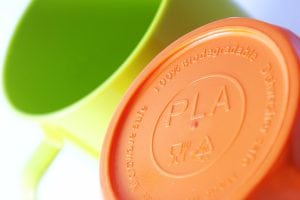 PLA, a polymer that’s growing in popularity, is often marketed to brand owners for its biodegradability in commercial composting systems. Now, a plastics technology company has developed a chemical process for recycling the polymer.
PLA, a polymer that’s growing in popularity, is often marketed to brand owners for its biodegradability in commercial composting systems. Now, a plastics technology company has developed a chemical process for recycling the polymer.

Global petrochemicals company Total has partnered with a startup that dissolves and recovers EPS for recycling. Officials from both companies recently provided more details about the deal.
